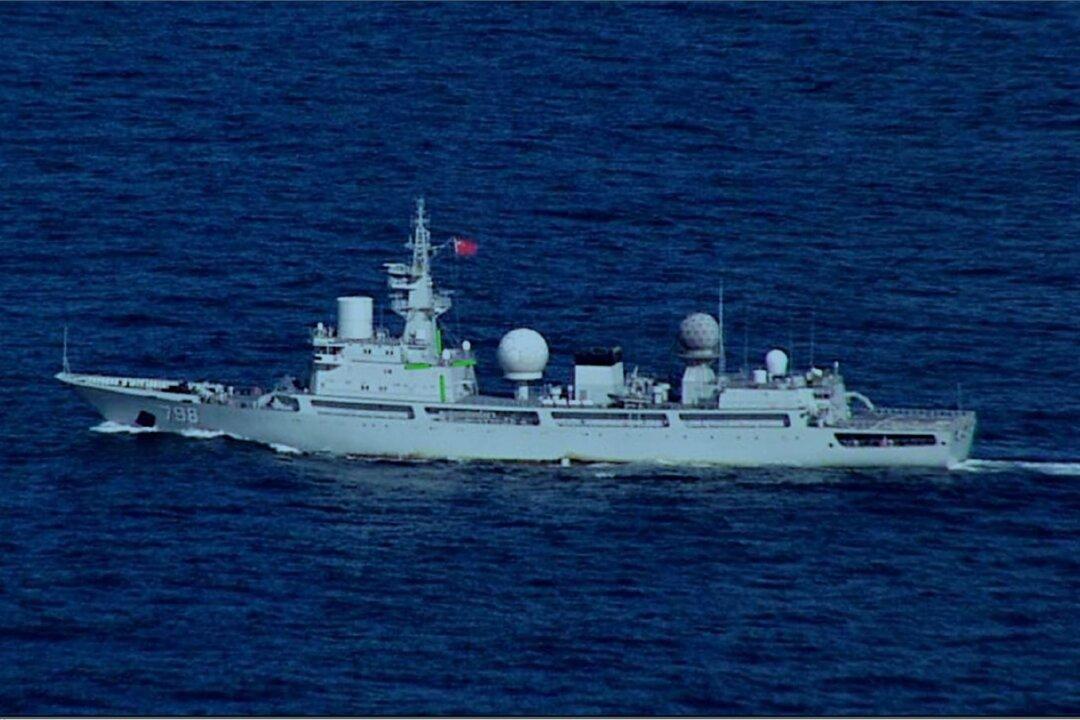A Chinese spy ship has been circling Australia for three weeks collecting intelligence off the coast, raising security concerns as Australia’s defence minister warned the country is facing the most dramatic change in its strategic environment since WWII.
Intelligence Ship Yuhengxing entered Australia’s 200 kilometre exclusive economic zone near Darwin in August and September, hugging the coastline and headed as far south as Sydney. It passed a number of important military areas, before sailing across the Tasman Sea to New Zealand.




